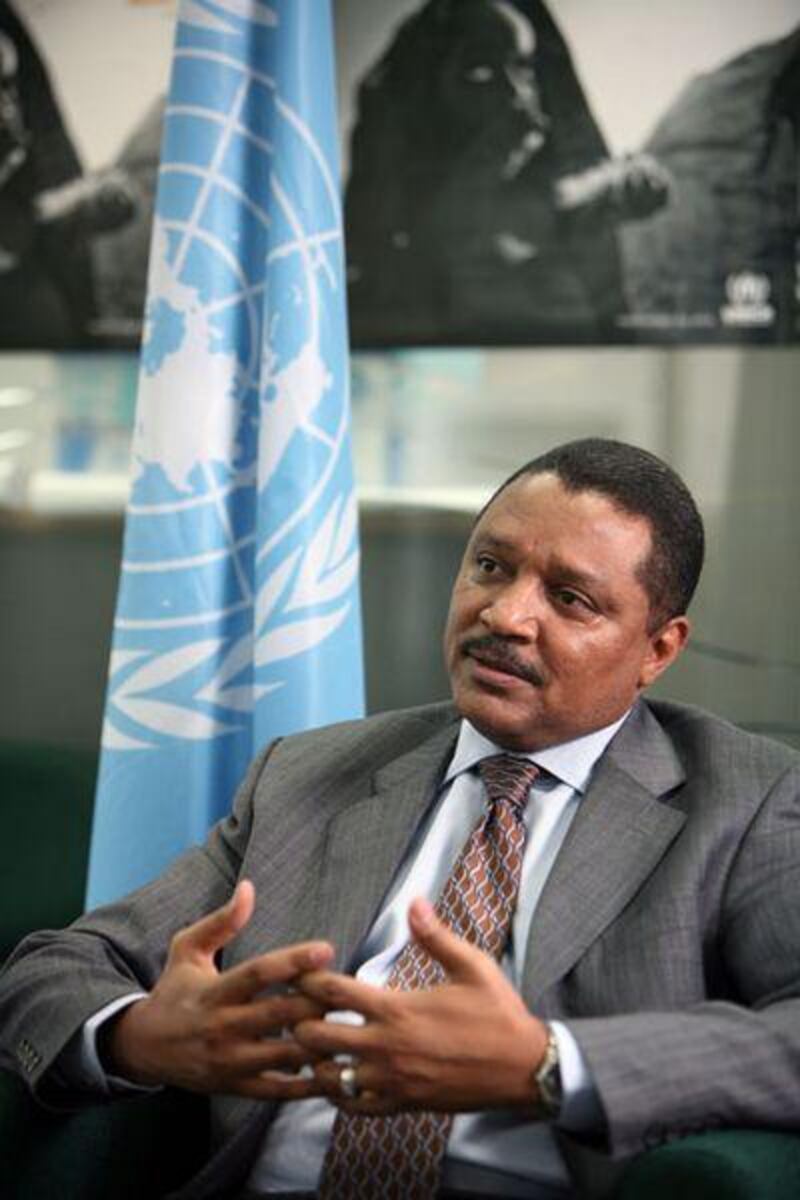DUBAI // More than 200 refugees are being provided with temporary protection in the UAE as they wait to be resettled in third countries, the UN refugee agency says. Most of the refugees come from Iraq and Afghanistan and entered the country legally, it says.
In most cases, situations in the refugees' home country changed while they were working in the UAE, leading them to believe they or their families would be at risk if they returned. They then applied to the UNCHR for asylum and were granted transitional protection before being resettled in a third country. In an interview last week, the UNHCR's new representative for the GCC, Yacoub el Hillo said the UAE's role in refugee issues was evolving.
Besides providing some asylum-seekers whose cases are being considered with a temporary haven, he said this country was also providing more support during international crises. "The evolution of how asylum cases are now being processed in the UAE, and elsewhere in the GCC, suggests that there is a growing understanding of the predicament many of these refugees are facing," he said. "There is a sense of understanding, of readiness to facilitate the work of UNHCR with a view of helping realise a solution for these individuals."
Mr el Hillo, 47, who is based in Riyadh, was on a week-long visit to the UAE. He said he "remains hopeful" that countries in the region, including the Emirates, will eventually sign the 1951 Refugee Convention, which defines who is a refugee and sets out the rights of those granted asylum. "Although the UAE, like all the other five GCC countries, is not a signatory to the 1951 Convention, the spirit of the convention is very much evident," he said.
"Hopefully that process will one day lead to an adoption of the convention, which is our ultimate hope." The UNHCR has been given "full access" to the small refugee population in the UAE to assess their cases and claims, he said. The agency works closely with local authorities, which Mr el Hillo said was vital to finding solutions to the often complex cases that they encountered. "Once UNHCR recognises a person as someone deserving of international protection, the authorities allow us full access to those people, give us time and allow for temporary protection until a solution in a third country is found," he said.
Several cases were resolved as recently as the end of last year, when a group of asylum-seekers were resettled in Canada. Last year, 189 people in the UAE were accepted as legitimate refugees, and are now looking to resettle in North America and Europe. "There were cases where they otherwise would have thought they had no hope of a solution to their very long and protracted problem," Mr el Hillo said.
On average, anywhere around the world, it takes 18 months to two years to process resettlement cases, including assessing the case and finding a solution that ends with refugees "given a new beginning in a new country", Mr el Hillo said. The UAE is also playing a significant role in refugee issues abroad, he said. After millions of civilians were forced to flee the Swat Valley during fierce fighting between the Pakistani military and Taliban fighters last year, the UAE responded by signing what was hailed as the UNHCR's largest partnership in the Arab world for three decades.
The funding was used in part to provide more than 25,000 families with relief items, including temporary shelters and roofing materials, as they began to return to their homes. The undisclosed amount granted by the Khalifa bin Zayed Al Nahyan Foundation was used to help them travel back to their towns and villages, Mr el Hillo said, as well as help them obtain clean water, food, health care. As a result of that contribution and others, in 2009 the UAE became the first Arab or Muslim country to join an elite club of nations that gave more than US$20 million (Dh73.5m) to the UNHCR in a year.
zconstantine@thenational.ae






